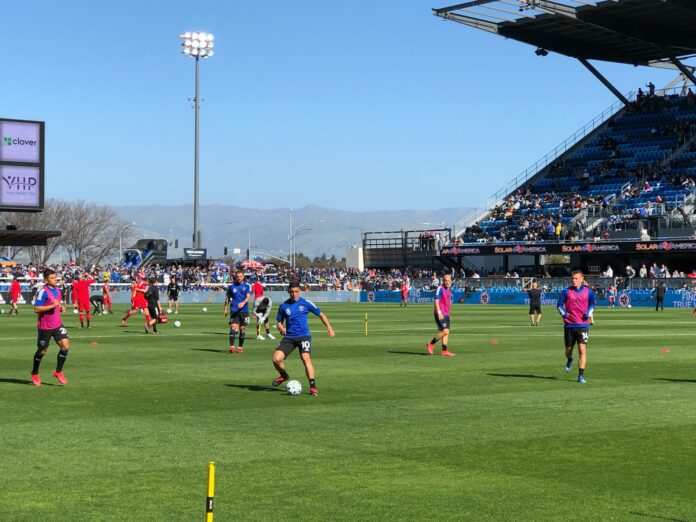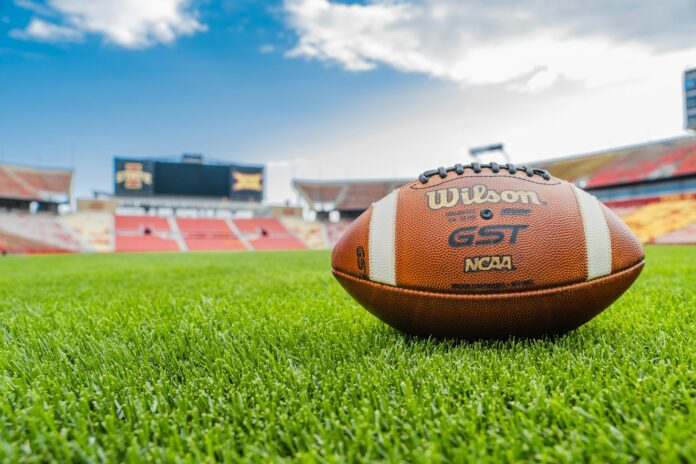Introduction
From our previous blogs covering the World of Football Agents we have seen that the responsibilities of agents for the services provided to their clients is extensive and demanding. Agents serve many purposes as intermediaries, negotiators, and advisors to the athletes they represent in sporting, commercial and many other forms of deals and contracts. Hence the question ‘How to become a football agent?’ can warrant varied responses. But for the sake of this blog, we will specifically consider what skills are required to become a football agent that represents players as clients.
It is a challenging industry and profession and many that start out as agents will become well accustomed to facing difficulties during their time representing clients. However, there are certain personal characteristics and attributes that, if an individual possesses them, enhances the quality of their performance as an agent and the services they provide. The very best football agents tend to possess a common but unique set of qualities that enable them to navigate the complex and ever-changing landscape of the football industry while advocating for the best interests of their clients. In this blog, we will explore the top 10 essential qualities that will help you on your journey to being a successful agent.
- Negotiation Skills
Negotiation skills are undoubtedly one of the most critical factors that distinguish the top football agents. In the world of professional football, where contracts, endorsements, and transfer deals can make or break a player’s career, the ability to negotiate effectively on the behalf of your client is paramount.
First and foremost, football agents play a pivotal role in securing favourable contracts for their clients. These contracts encompass various aspects, including salary, bonuses, contract duration, and other performance-related incentives. Negotiating a lucrative contract requires a deep understanding of the player’s value in the market, the financial capabilities of the club or team, and the current state of the industry. A skilled football agent must be confident of finding the intricate balance between pushing for the best possible terms for their client while also ensuring that the deal remains attractive enough for the club to agree to it. This can help a player secure a contract that not only rewards their talent but also sets them up financially for the long term.
Endorsement opportunities are also a significant source of income for many of the top modern professional footballers. A great football agent will actively seek out and negotiate endorsement deals on behalf of their clients. These endorsements can range from sponsorship deals with sportswear brands to partnerships with other companies looking to leverage a player’s popularity. Effective negotiation in this realm involves understanding a player’s marketability, identifying suitable brands or sponsors, and striking deals that not only provide financial benefits but also align with the player’s image and values.
Transfer negotiations are another crucial aspect of a football agent’s responsibilities. When a player is looking to move to a new club or when clubs are interested in acquiring a player’s services, the negotiation process can be complex and highly competitive. A skilled football agent must navigate the intricate web of transfer fees, contract terms, and player conditions. They must advocate for their client’s interests while maintaining positive relationships with club executives and other agents. Successfully negotiating a transfer deal can lead to a player moving to a club that enhances their career prospects and secures a substantial financial gain.
2. Understanding of Football
A profound understanding of the sport of football is absolutely essential for football agents to excel in their role. Their expertise in the intricacies of the game goes far beyond the surface level knowledge of the rules and regulations; it extends into the broader landscape of market dynamics, player performance, and club strategies. Here’s why this deep understanding is crucial:
- Rules and Regulations: Football agents must have a comprehensive grasp of the rules and regulations governing the sport at various levels, from local to international. This knowledge ensures that all contractual agreements and transfers comply with the governing bodies’ guidelines, avoiding potential legal complications and sanctions.
- Market Dynamics: Football is a dynamic and ever-evolving industry. Agents need to stay abreast of market trends, player valuations, transfer windows and club financial situations and transfer strategies. Understanding the market dynamics allows agents to accurately assess their clients’ worth, negotiate better deals, and identify opportunities for player transfers that align with their career goals.
- Player Evaluation: Football agents should be able to evaluate players’ abilities and potential accurately. This involves not only recognising a player’s skill on the field but also assessing their marketability, fitness, and long-term prospects. This knowledge enables agents to guide their clients toward appropriate clubs where they can thrive and make a meaningful impact.
- Club Strategies: Every football club has its own unique strategy, playing style, and financial constraints for each transfer window and between. Agents with a deep understanding of the sport can match their clients with clubs that align with their playing preferences and career aspirations. They can also anticipate a club’s future moves and plan accordingly, ensuring their clients’ interests are well-served.
- Informed Decision-Making: When negotiating contracts, transfers, or endorsement deals, informed decisions are paramount. A football agent who comprehends the sport can advise their clients on the best course of action, taking into consideration not only the financial aspects but also the potential impact on their career and personal life.
- Risk Management: Football is not without its risks, such as injuries, sudden changes in performance, or changes in club dynamics. Agents with a deep understanding of the sport can help their clients mitigate these risks by making strategic decisions that safeguard their long-term prospects.
3. Networking Abilities
Networking within the football industry inevitably enhances the chances of success for football agents. These relationships spanning from scouts and coaches to parents and players to lawyers and journalists, provide a foundation for opportunities, empowering agents to identify openings for their clients, negotiate advantageous deals, and stay attuned to evolving market dynamics. By nurturing connections with club executives, coaches, and fellow agents, football agents gain valuable insights and information that can make a substantial difference in their clients’ careers.
These connections not only provide access to the latest trends and player valuations but also grant agents the power to negotiate contracts, transfer fees, and endorsement deals more effectively. Trust and rapport developed through these relationships facilitate smoother negotiations and more favourable terms. Moreover, well-established networks enable agents to serve as trusted advisors, offering guidance beyond contract negotiations and helping players make informed career choices.
In times of disputes or conflicts, these relationships can be instrumental in finding constructive resolutions, as agents can rely on their network to engage in productive dialogues. Furthermore, they play a pivotal role in long-term career planning, assisting players in aligning their aspirations with suitable opportunities. In essence, being a proficient networker is a critical skill that underpins an agent’s ability to navigate the complex and competitive world of professional football, ultimately ensuring the success and prosperity of the players they represent.
4. Communication Skills
Effective communication is key to a football agent’s role in representing and advocating for their clients. Agents must be able to convey their clients’ needs, preferences, and ambitions to clubs, sponsors, and other stakeholders. This requires clear and persuasive communication skills to ensure that their clients’ objectives are fully understood and pursued. Whether negotiating contracts, transfers, or endorsement deals, agents must articulate their clients’ value and requirements to secure favourable terms that align with their goals. Moreover, building trust is paramount, and consistent, honest, and professional communication is fundamental to nurturing the trust between agents and their clients.
5. Integrity and Ethics
Anyone working in the football industry quickly realises that it is a reference business. Players and other industry professionals talk amongst themselves and it is a small world so the reputation you build around yourself as an agent will be spread around.
A reputation can take years to build and therefore maintaining integrity and ethical standards is paramount for the long term success of football agents. It’s an absolute necessity in an industry where trust and reputation are pivotal and often public perception is not favourable towards agents thanks to portrayal within the media. It is the clients themselves that rely on their agents to always act in their best interests, forming the foundation of their professional relationship. Agents with a reputation for honesty and ethical conduct earn the trust of both players and clubs, a critical factor in attracting and retaining clients and securing opportunities.
Ethical behaviour is not only a moral imperative but also a legal and professional requirement in the football industry. Agents must navigate a complex web of rules and regulations, both domestically and internationally, and adhere to these standards to avoid sanctions and legal consequences. By ensuring compliance with the FIFA Football Agent regulations and other governing laws, agents protect not only their careers but also their clients from potential legal issues arising from unethical conduct.
Furthermore, ethical behaviour extends to negotiations, where transparency, avoidance of conflicts of interest, and ensuring informed consent of all parties are paramount. Ethical negotiations foster goodwill and prevent legal disputes that could harm an agent’s reputation. Agents who prioritise integrity understand that it is not just about short-term success but also about building a lasting and respected career in the industry, where ethical conduct opens doors and facilitates long-term success.
6. Legal and Financial Knowledge
A solid grasp of the legal and financial intricacies of the football industry is indispensable for football agents. Their ability to manage contracts, handle finances, and navigate complex regulatory frameworks directly impacts their clients’ financial well-being and long-term success. By leveraging their expertise in these areas, agents can protect their clients’ interests and provide invaluable guidance throughout their careers, ultimately ensuring financial security and prosperity for the players they represent. Agents must be capable of managing a variety of financial and legal intricacies to safeguard their clients’ financial interests and ensure a successful and secure career.
Perhaps the fundamental basis of the work of football agents is the responsibility of managing contracts, which can be complex and multi-faceted documents. Although we would always advise consulting a lawyer for certain contracts, an in-depth understanding of contract law and the specific clauses commonly found in football contracts is essential. Agents must ensure that the terms of these contracts align with their clients’ goals and provide the necessary protections, such as performance bonuses, image rights, and contract duration. Mistakes or oversights in contract negotiations can have significant financial repercussions for both the player and the agent, underscoring the importance of meticulous attention to detail and legal expertise.
Navigating the financial aspects of a player’s career is another critical part of an agent’s role that is worth considering. This includes managing the player’s income, ensuring timely payment of salaries, and overseeing investments and financial planning. Agents must also be well-versed in tax regulations, both domestically and internationally, as many footballers have a global career that involves various tax jurisdictions. Mismanagement of finances or failure to comply with tax laws can result in substantial financial losses and legal troubles for the player, making financial acumen and compliance expertise indispensable for football agents.
7. Player Development Insight
Football agents with a deep understanding of player development can have the ability to play a significant role in their clients’ careers and can also fulfil a purpose as a scout, identifying the next best talents to represent. Once signed, agents serve as not only negotiators but also as career strategists, helping players make informed decisions that can shape their journey to becoming the best athletes they can be. This insight into player development involves several critical aspects:
Firstly, selecting the right clubs is fundamental to a player’s development. A great football agent can assess a player’s skills, aspirations, and potential and uses this knowledge to identify clubs that align with these factors. This may include considering factors such as the club’s playing style, coaching staff, available playing time, and overall culture. By placing players in environments that foster their growth, agents set the stage for long-term success.
Another key point to note is that agents can sometimes play a role in advising their clients on training programs and development opportunities. They may recommend specific training regimes, fitness coaches, or nutrition plans that can enhance a player’s performance and physical attributes. This guidance extends beyond the pitch, as agents can also help players with off-field development, including media training, language lessons, and personal branding, all of which contribute to a well-rounded athlete.
Furthermore, agents with player development insight keep a close eye on market trends and emerging opportunities. They are aware of the latest advancements in sports science, technology, and coaching methodologies, allowing them to connect their clients with cutting-edge resources that can accelerate their development. Whether it’s identifying new training techniques or understanding how to leverage data analytics to optimise performance, these agents stay at the forefront of the industry to provide their clients with a competitive advantage.
8. Problem-Solving Skills
Problem-solving skills are a key attribute of exceptional football agents. In an industry as dynamic and competitive as football, challenges are bound to arise, and these agents excel at effectively addressing and resolving them. They serve as the invaluable bridge between players and clubs, ensuring that their clients’ interests are protected and advanced.
Agents frequently encounter contract disputes, injuries, or other unforeseen obstacles that can threaten a player’s career and financial stability. A key responsibility is to act swiftly and strategically to find solutions that benefit their clients. This may involve engaging in difficult negotiations, mediating disputes between players and clubs, or collaborating with legal and medical experts to navigate complex issues. By maintaining a proactive and problem-solving mindset, these agents help players overcome obstacles and ensure their careers remain on a positive trajectory.
Moreover, problem-solving skills extend to broader career planning. Exceptional agents don’t just react to challenges as they arise; they also anticipate potential roadblocks and take proactive steps to mitigate risks. They craft long-term strategies that align with their clients’ career aspirations, ensuring that their players are well-prepared to navigate the ever-evolving landscape of professional football. In this way, problem-solving becomes a proactive approach to safeguarding and enhancing their clients’ careers.
9. Resilience and Persistence
Resilience and persistence stand as indispensable qualities for football agents, particularly when they find themselves immersed in the intricacies of tough negotiations or faced with market challenges. In the world of professional football, setbacks and obstacles are commonplace, ranging from protracted contract negotiations to unexpected changes in market dynamics. However, it is precisely during these trying times that the true mettle of a football agent is tested.
Exceptional agents demonstrate unwavering determination and an unyielding focus on their clients’ goals, even when faced with adversity. They understand that the football industry is fraught with uncertainties, and success often requires navigating through turbulent waters. For instance, during negotiations, agents may encounter club executives with differing priorities, and finding common ground can be a protracted and arduous process. In such situations, resilience keeps them from becoming discouraged or disheartened, enabling them to persevere until a favourable outcome is achieved.
In football, the market can be unpredictable and have a substantial impact on player contracts and opportunities. A shift in the global economic landscape, changes in club spending, or alterations in sponsorship and endorsement trends can present formidable challenges. However, the best agents adapt to these shifts and remain undeterred in their pursuit of their clients’ best interests. They leverage their persistence to explore alternative avenues, identify emerging opportunities, and develop innovative strategies that allow their clients to thrive, even in the face of adversity. In sum, it is the combination of resilience and persistence that sets the most accomplished football agents apart, enabling them to not only weather the storms of the football industry but also to emerge stronger and more successful in their mission to advance their clients’ careers and aspirations.
10. Client-Centred Approach
A client-centred approach is perhaps the most important characteristic of the best football agents. In essence, a client-centred approach is a commitment to going above and beyond in service of the player. It’s about being there every step of the way, ensuring that their clients’ dreams, ambitions, and welfare are at the forefront of every decision made. The best football agents understand that their success is intrinsically linked to the success and well-being of the players they represent, and they take this responsibility to heart, striving to be not just agents but true partners in their clients’ journeys to excellence in the world of professional football.
The best agents are able to set aside their own priorities and recognise that their primary role is to be unwavering advocates and protectors of their clients’ interests, and this dedication to the players they represent is at the heart of their success. This approach not only prioritises the immediate needs and goals of the player but also encompasses a broader commitment to the player’s well-being and long-term success.
Agents who adopt a client-centred approach understand that the world of professional football is highly competitive and constantly evolving. They know that their clients’ careers can be shaped by a multitude of factors, including contract negotiations, transfers, injury management, and even off-field opportunities like endorsements and brand-building. With this comprehensive understanding, they ensure that every decision and action they take aligns with their client’s best interests and overall career aspirations.
It is important to remember that a client-centred approach is not limited to the transactional aspects of football representation. It extends to being a trusted advisor and confidant for the player, offering guidance on a wide range of issues, from career planning and financial management to personal development and life transitions. Exceptional agents build strong, long-lasting relationships with their clients, fostering trust and loyalty that transcends the immediate demands of the industry.
Conclusion
In conclusion, the world of football agents demands a diverse and comprehensive skill set, ranging from negotiation prowess and football expertise to effective networking, communication, and unwavering integrity. The very best football agents excel in these areas, utilising their knowledge and attributes to navigate the intricate and competitive landscape of professional football while prioritising the interests and well-being of their clients. By embodying these essential qualities, they not only secure lucrative contracts, endorsement opportunities, and successful transfers but also serve as trusted advisors and advocates, ensuring their clients’ long-term success and prosperity in the dynamic world of football.











